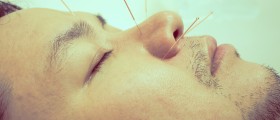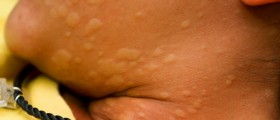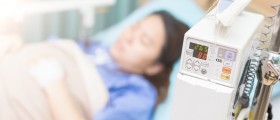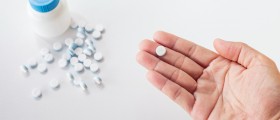
Antihistamine inhibits, the action of histamine and its effects. H1 antihistamines are generally used to alleviate symptoms of allergies. An allergic reaction (which can be so intensive such as anaphylaxis) is a consequence of excessive release of histamine and other mediators. H1 antihistamines are also effective against inflammatory reactions caused by insect stings. H2 antagonists are, on the other side, used for the treatment of acid reflux and they effectively decrease production of stomach acid. Antihistamine overdose is generally a consequence of increased intake of antihistamine medications.
Symptoms of Antihistamine Overdose
High levels of antihistamines in the blood, leads to a sudden drop in blood pressure (hypotension). The accompanying symptoms of low blood pressure are drowsiness, disorientation and dizziness. In case an antihistamine overdose occurs as a consequence of increased intake of a specific class of antihistamines (such as Benadryl) a person may complain about excessive fatigue, drowsiness and sleepiness. These negative effects can significantly interfere in everyday performance.
A significant increase in the intake of antihistamines may have more serious effects, such as seizures. An involuntary shaking of the body that does not have to affect all people who have exceeded the recommended dose. One more feature of antihistamine overdose includes visual problems. The patients may complain about blurred vision or double vision. Additionally patient's pupils may be enlarged.
Antihistamine overdose is also accompanied by stomach upset and symptoms such as nausea and vomiting.
In case of phenindamine overdose a casualty may suffer from delusions, hallucinations and lack of comprehension or cognition. Additional mental aberrations include nervousness, disorientation, confusion, depression and delirium.
Apart from the previously mentioned symptoms, antihistamine overdose may also lead to fainting, headache and lightheadedness. In extreme cases one may even lose consciousness. And finally, in rather rare occasions excessive intake of antihistamines may cause skeletal muscle breakdown and consequent kidney damage and failure and certain problems with pancreas.
Treatment for Antihistamine Overdose
Even though, antihistamine overdose leads to many reactions (some of which are serious) there are ways which can effectively reverse detrimental body reaction to increased level of antihistamines.
Patients are supposed to be hospitalized. The treatment includes activated charcoal. This treatment is administered in patients who retain a good gag reflex, can take liquids orally and are able to cooperate with doctors. Gastric emptying is one more treatment modality. In case of delusion, anxiety and the like patients may be given benzodiazepines. The goal of the treatment is to eliminate the excess of antihistamines and prevent its detrimental effects.





-Help-Treat-Your-Cold-Or-Flu_f_280x120.jpg)










Your thoughts on this
Loading...